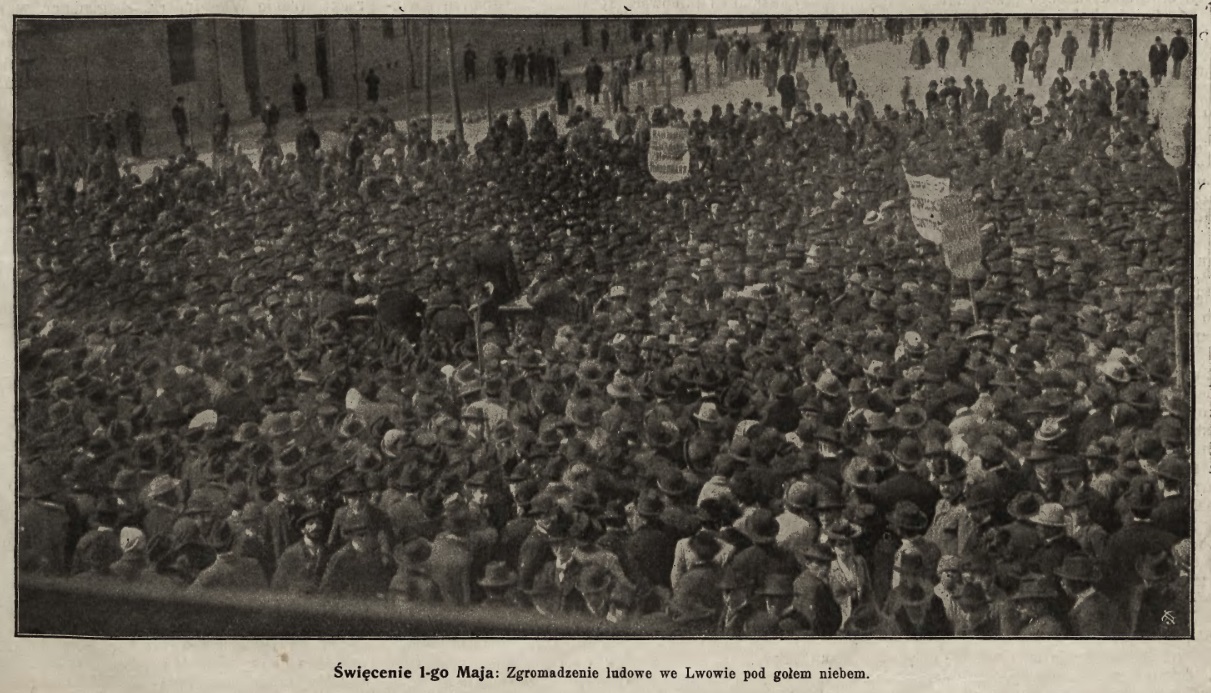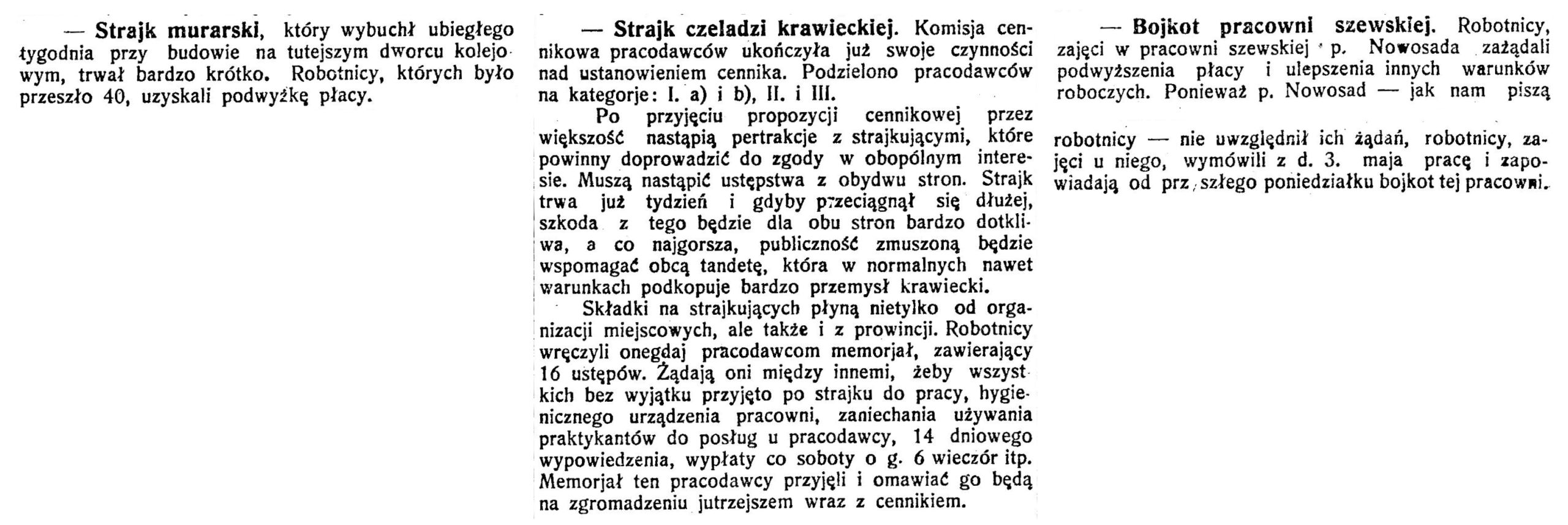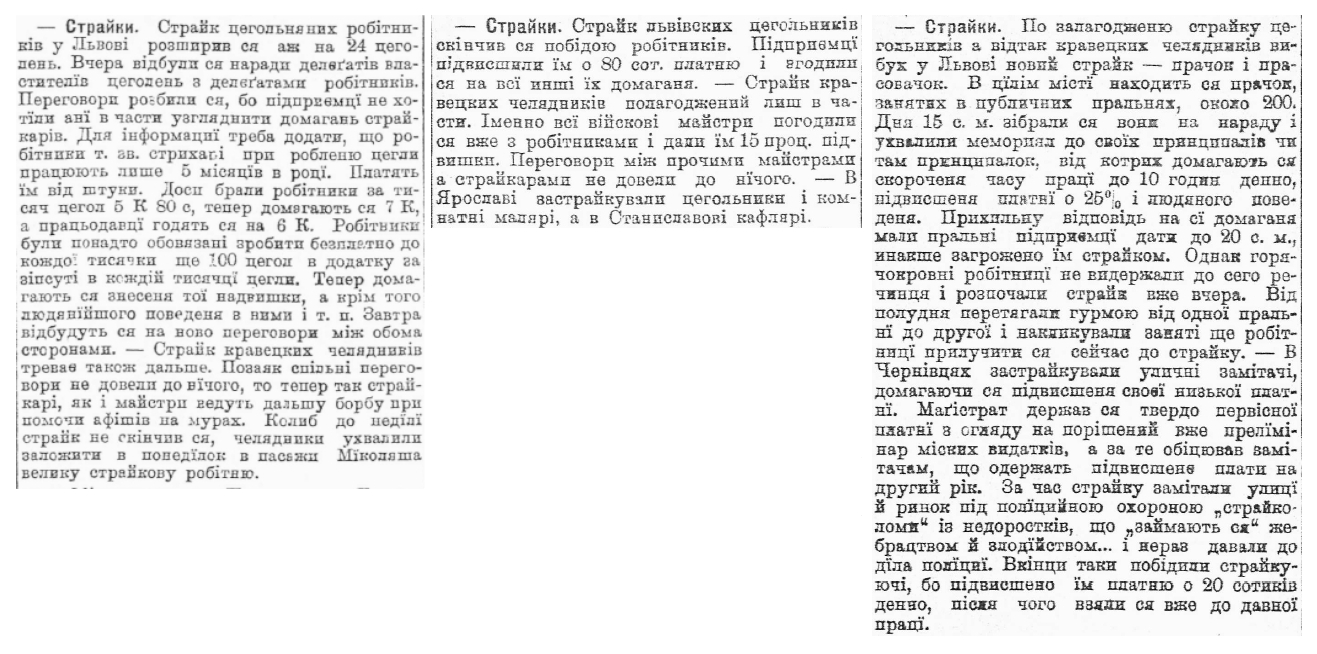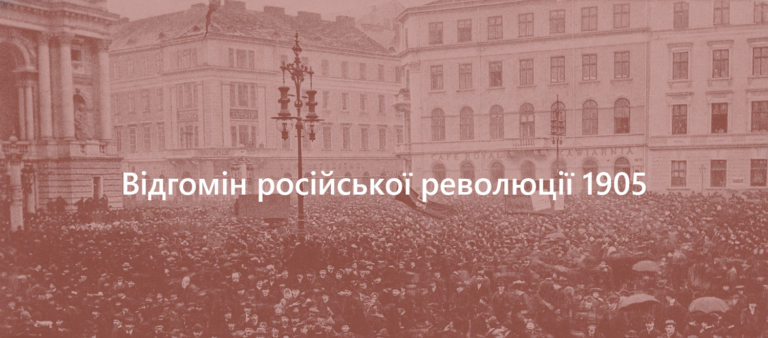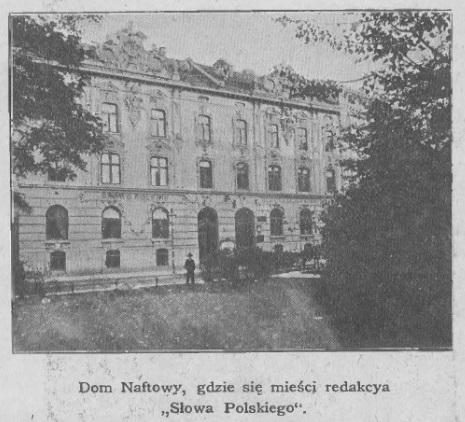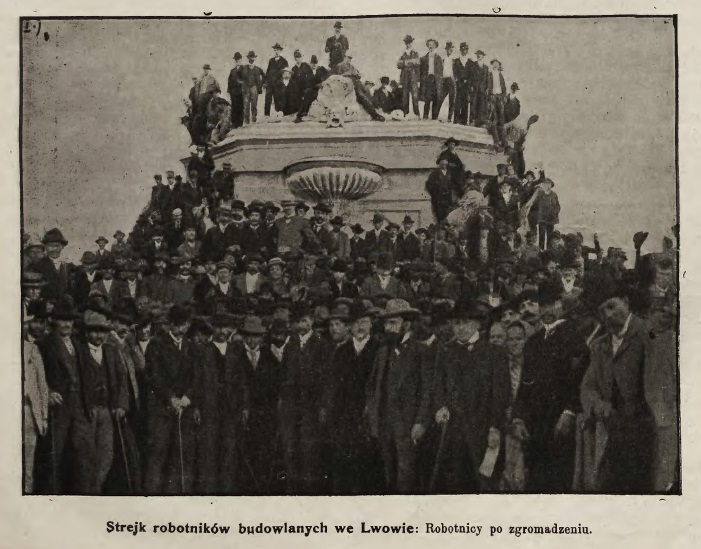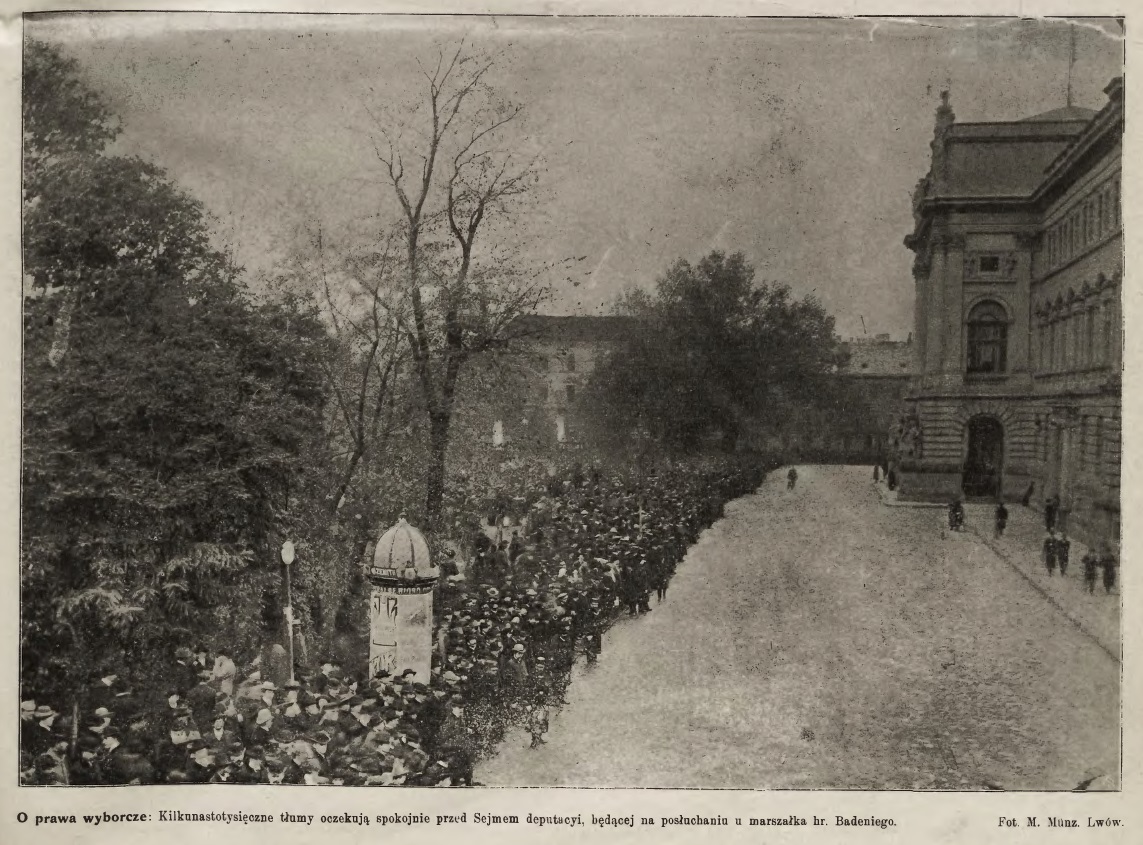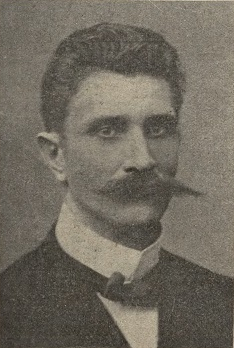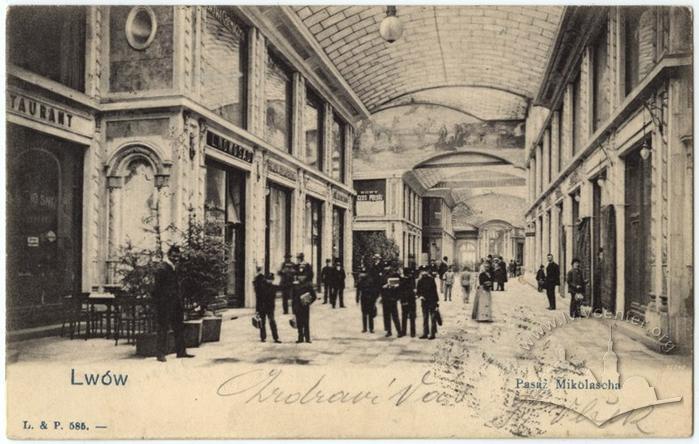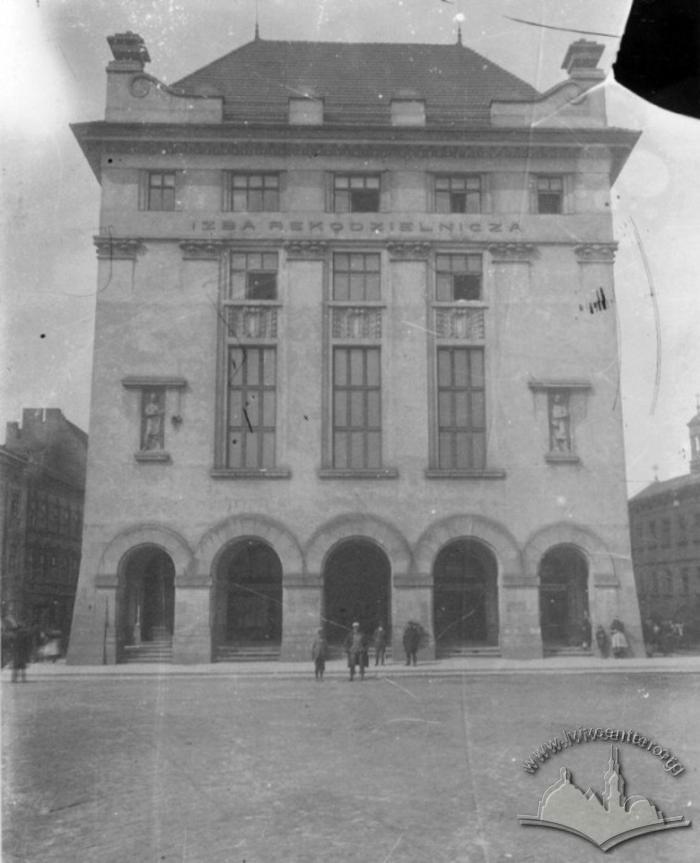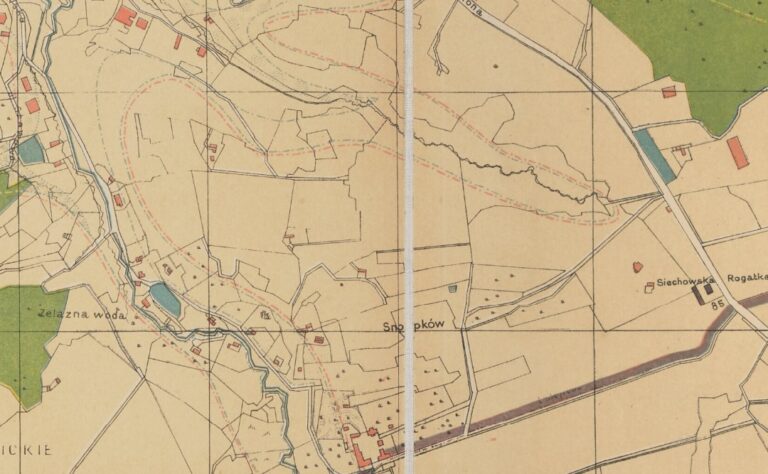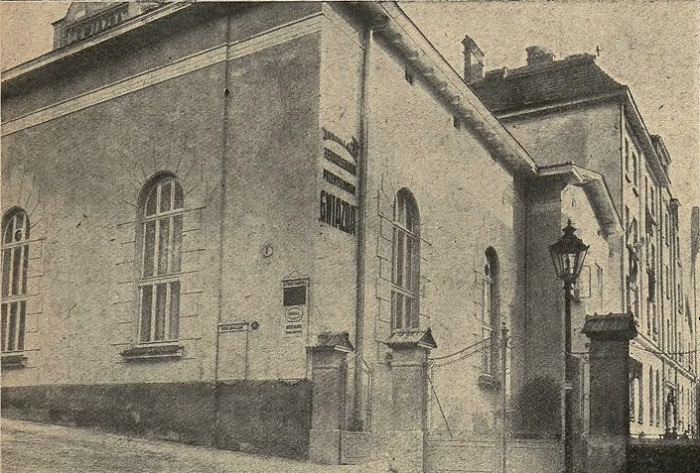The strikes in May 1905 in Lviv were not massive; in principle, reports about them differ little from reports about strikes in other cities and towns of Galicia. After all, in the troubled year of 1905, even May Day was held in Lviv without conflicts.
However, during the strikes of May 1905, a trend emerged that manifested itself at its full potential during the construction workers' strike in July: an attempt to play the "patriotic card" in the confrontation between workers and employers. With this in view, the press, posters on the walls, and speeches during rallies or meetings were used.
A conflict between "patriotic foremen" and low-skilled hired workers
In early May, there was a short strike of 40 workers involved in the construction of the railway station. It ended quickly after the workers got a raise. At the same time, "shoemakers’ journeymen", who were low-paid, unskilled hired workers, went on strike. On May 9, delegates of the "journeymen" and "foremen" met to reach a compromise (an increase in wages) but to no avail. The "journeymen" achieved the desired raise after a two-week strike, on May 19.
This conflict of "foremen" (elite) with "journeymen" was also present in other areas of the economy. It is interesting if we consider it also in the context of the then popular patriotic "guild" celebrations, where the foremen and urban elite used "tradition" and nationalistic rhetoric to advance their agenda.
During another strike, which began in early May, this time by "tailors' journeymen", the idea of local patriotism found a purely financial embodiment. Even the democratic Kurjer Lwowski reported that the continuation of the strike was primarily beneficial to entrepreneurs from outside Galicia, as an increase in wages would make local goods more expensive and therefore uncompetitive compared to imported goods. The workers, though, demanded not only money but also improved hygiene conditions at workplaces, 14-day notice of dismissal and regular weekly salary payments.
Posters on the walls became the main propaganda tool. When it was not possible to reach an agreement, the "foremen" published an appeal in which they threatened the people of Lviv with the dominance of imported goods and the bankruptcy of local entrepreneurs. In response, the workers threatened to open their own workshop, a "strike workshop", in the Mikolasza passage (in the premises rented by the Association of Construction Workers Ogniwo — ed.).
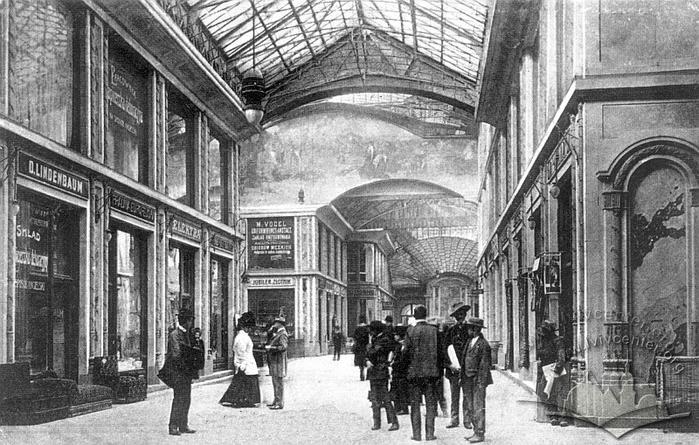
"Forbidden techniques" of information warfare
When staking on patriotic feelings did not work, the employers tried to play on the contradictions among the workers themselves. Posters with the following contents appeared in the city: "Fellow tailor workers! We have been out of work for two weeks thanks to our leaders. These leaders act in the interests of the sellers of ready-made clothes from Vienna. It is because of them that we have to endure hunger and need. Everyone to work! It is better to live for what was earned rather than for what was begged. They give us 1 crown each, but they take 100 crowns for themselves. Get rid of the bribed instigators of the strike!" Typically, the authors of this message were never found, but the police forbade the strikers to put up their own posters in response.
The end of the tailor workers' strike, the solidarity of Jewish and Christian workers
On May 17, Ignacy Daszyński, a member of the State Council and head of the Social Democratic Party, attended the meeting of the strikers. On the same day, the Jewish tailors' journeymen decided that they would also go on strike on May 18, if the Christian journeymen did not resolve their issues by that time. On May 17, only a 15% increase in wages for those involved in military orders was agreed. After that they went back to work.
Finally, on May 19, after 18 days of strike, the parties reached an understanding. Wages were increased by 10-30%.
Other strikes in May
On May 10, a strike began at the Snopkiv brickworks. The workers demanded higher wages and better working conditions. In total, about 300 workers worked at the brickyards. The season lasted 5 months a year. Interestingly, it was not the least qualified group that went on strike as each of the three hundred workers hired assistants at their own expense.
A day later, 24 enterprises were affected by the riots. On May 12, the strikers' delegates negotiated with the owners of enterprises, but to no avail. In just a week, the owners agreed to a wage increase, and the strike was over.
On May 15, a meeting of "washers and ironers" took place. In Lviv, about 200 women worked in public laundries; now they demanded to reduce the working day to 10 hours, to raise wages by 25% and to be treated "humanely." The demands had to be accepted by May 20, otherwise the workers threatened to go on strike. However, they lost their ground and started the strike earlier, on May 19. At lunchtime on that day they went in a crowd from one laundry to another and took with them those women who were still working. The owners of two laundries agreed to the demands of the strikers immediately, others did the same later, so the strike ended quite soon.
Looking at this story from a further perspective, one can see that some methods of striking and resisting strikes were tested in Lviv in May 1905. These were marches of strikers to their workplaces and actual coercion to stop work, propaganda posters, publications in the press and the use of "patriotic" arguments. However, all this manifested itself fully in July, during a long and dramatic strike of construction workers.
